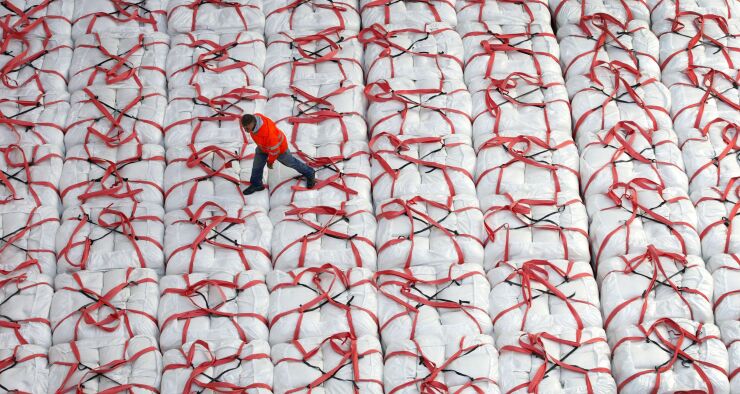A company building a novel factory in California that has defaulted on its debt payments is seeking the state’s approval to sell an additional $53 million in tax-exempt bonds.
CalPlant I LLC, constructing the world’s first facility converting rice cultivation debris into fiberboard, will appear before the California Pollution Control Financing Authority on Tuesday for its request to borrow more, according to a company filing and

Proceeds will go to the operation’s costs and not to cover debt service for its previous unrated tax-free bonds, the company’s filing said. The firm skipped a July payment on a $228 million issue sold in 2017, although it has continued to meet obligations for last year’s $74 million deal. The company plans to get the consent of its bondholders before issuing the debt.
The request will test California’s appetite for such ventures that are intended to produce economic and environmental benefits and will also gauge investors’ risk tolerance. Already, a company backed by Fortress Investment Group private equity funds plans to sell a record amount of unrated municipal bonds this month to finance a passenger train to Las Vegas from a Mojave Desert town, after California and Nevada officials granted the company the states’ limited allotment of municipal bonds for such projects.
Amid low rates, bond buyers have moved further down in credit quality in search of fatter returns. Still, for the past three weeks, investors have yanked cash out of municipal-bond high-yield funds, according to Refinitiv Lipper US Fund Flows data.
Project Woes
CalPlant has run into many troubles during construction. Last month, fire swept through its storage yard holding the fiberboard material called rice straw, and last week, insurance adviser Marsh USA Inc. said it’s not “commercially feasible” for the company to get property coverage for construction risks under the terms of its policy that expired in August.
A report from the California financing agency on CalPlant’s request couldn’t be disclosed yet, according to Spencer Walker, attorney for California Treasurer Fiona Ma. He also declined to state her position on the matter. CalPlant is responsible for debt payments, not the agency issuing the bonds on its behalf.
Elizabeth Whalen, a spokesperson for CalPlant, declined to comment on the proposed financing.
“The plant startup and commissioning specialists returned to Willows in August after leaving the site in March for Germany due to the pandemic,” she said by email. “We anticipate starting the plant in November 2020.”





